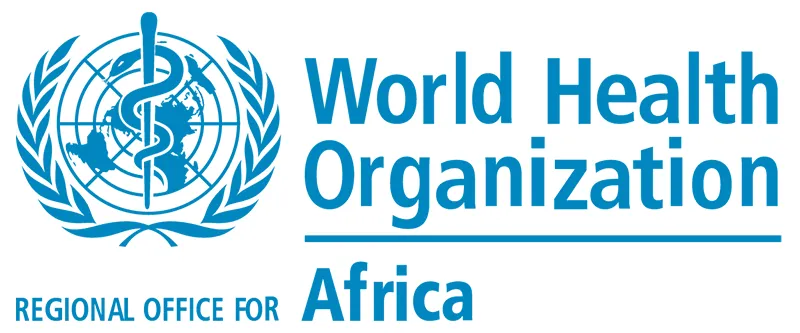
Revolutionizing Maternal Health: WHO Boosts Healthcare Workers Training in Sierra Leone to Combat HIV, Syphilis, and Hepatitis B Transmission
2025-04-04
Author: Daniel
Introduction
In March 2025, Sierra Leone embarked on a transformative journey aimed at eradicating the mother-to-child transmission of HIV, syphilis, and hepatitis B—a bold initiative termed "Triple Elimination." The World Health Organization (WHO) has played a pivotal role by providing vital support and training to frontline health workers in key cities, Makeni and Bo.
Training Program
Between March 10th and 14th, a comprehensive training program took place, engaging 80 health professionals—including Maternal and Child Health Aides, Midwives, Community Health Officers, and HIV Counselors. The intensive sessions sharpened the participants' knowledge and skills in delivering integrated services focused on the elimination of mother-to-child transmission (EMTCT) within maternal and child health (MCH) frameworks.
Funding and Background
This initiative was funded by the Global Fund and was a direct response to alarming findings from a rapid EMTCT cascade analysis conducted in June 2024. The analysis revealed significant service delivery shortcomings: only 77% of women newly diagnosed with HIV began antiretroviral therapy (ART) during their first antenatal care visit, and only 36% of HIV-positive women delivered in health facilities. Furthermore, the analysis raised concerns about the care provided to infants, with up to 30% testing positive for HIV by 18 months. Challenges like stock-outs of essential testing kits and inadequate laboratory systems further hampered efforts.
Training Focus and Content
The training focused on equipping healthcare workers with the practical skills necessary for providing holistic care. Participants learned essential techniques such as screening and managing treatment for pregnant women, timely infant testing, hepatitis B vaccination strategies, and methods for ensuring seamless patient linkage to care.
Role of WHO
WHO contributed significantly by aligning the training with global best practices, offering expert guidance, and facilitating sessions that taught effective case management and service integration. This collaborative effort highlighted Sierra Leone's dedication to achieving global EMTCT objectives while simultaneously enhancing overall maternal and child health.
Immediate Outcomes
Immediate outcomes from this training include improved competent delivery of integrated healthcare services, reinforced cooperation between maternal-child health and disease-specific programs, and better preparedness in healthcare facilities to provide timely testing and treatment interventions.
Participant Reflections
Participants reflected on the powerful impact of the training. Sr. Roberta Macauley, a District Health Sister, expressed that the training expanded her understanding of prevention and care strategies, empowering her to supervise effectively. Annie Morlai, a Senior Enrolled Community Health Nurse, underscored the importance of continuity in support, advocating for sustained oversight and the uninterrupted supply of essential medicines and test kits to ensure long-term success in building a healthier, HIV-free future.
Future Considerations
To solidify the achievements made through this training, ongoing mentorship and strong supervision will be crucial for newly trained healthcare workers. Enhancing the supply chain management for essential medical supplies and implementing robust monitoring systems will be necessary to track progress, identify gaps, and shape future strategies.
Conclusion
Investing in healthcare workforce development continues to be a top priority for WHO, the Ministry of Health, and various partners. Strengthening human resources in the healthcare sector is essential in sustaining the progress of the Triple Elimination initiative and ensuring improved health outcomes for women and children in Sierra Leone. As Sierra Leone takes these monumental steps toward eliminating mother-to-child transmission of HIV, syphilis, and hepatitis B, the world watches with anticipation—will this become a model for other nations facing similar challenges? Stay tuned as we report on the ripple effects of these advancements in global health!






 Brasil (PT)
Brasil (PT)
 Canada (EN)
Canada (EN)
 Chile (ES)
Chile (ES)
 Česko (CS)
Česko (CS)
 대한민국 (KO)
대한민국 (KO)
 España (ES)
España (ES)
 France (FR)
France (FR)
 Hong Kong (EN)
Hong Kong (EN)
 Italia (IT)
Italia (IT)
 日本 (JA)
日本 (JA)
 Magyarország (HU)
Magyarország (HU)
 Norge (NO)
Norge (NO)
 Polska (PL)
Polska (PL)
 Schweiz (DE)
Schweiz (DE)
 Singapore (EN)
Singapore (EN)
 Sverige (SV)
Sverige (SV)
 Suomi (FI)
Suomi (FI)
 Türkiye (TR)
Türkiye (TR)
 الإمارات العربية المتحدة (AR)
الإمارات العربية المتحدة (AR)